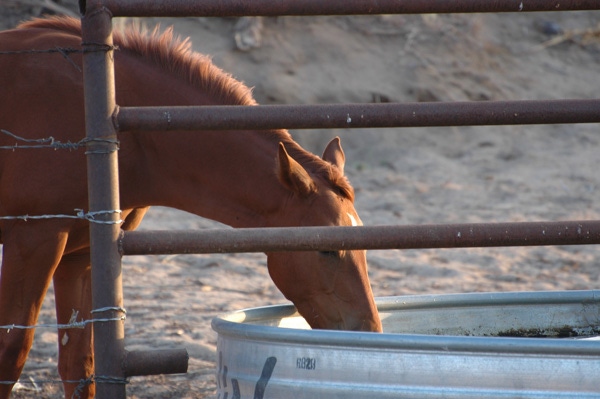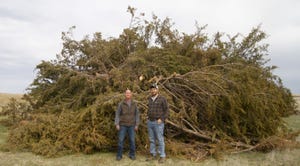Fall Feeding Tips For Horses
Colder weather requires horse owners to monitor a horse's nutrition program more carefully and possibly adjust it to meet the horse's nutritional needs. If specific questions arise when adjusting a feeding program for the winter, it's advisable to consult a veterinarian or equine nutritionist.
November 6, 2012

As temperatures drop, horse owners should begin to make changes in their horse's feeding program in preparation for winter. But what alterations are needed? Here are some points to consider when preparing to adjust a nutrition program for the colder weather.
As the temperatures fall, horses will often decrease their water consumption per day. Ensure horses always have access to fresh water, and when temperatures dip below freezing, make sure to check all water sources for ice.
Also consider providing electrolytes and/or warmer water to encourage drinking. If adding electrolytes to water rather than via an oral supplement, provide a second watch bucket in case the animal won't drink the flavored electrolyte water.
The most common way to provide forage to a horse is by supplying them with hay. Depending on the type (grass or legume) and harvest time, hay can provide a significant amount of a horse's daily nutritional needs. In addition, hay provides the horse with the required fiber for hindgut health.
You May Also Like
.png?width=300&auto=webp&quality=80&disable=upscale)


